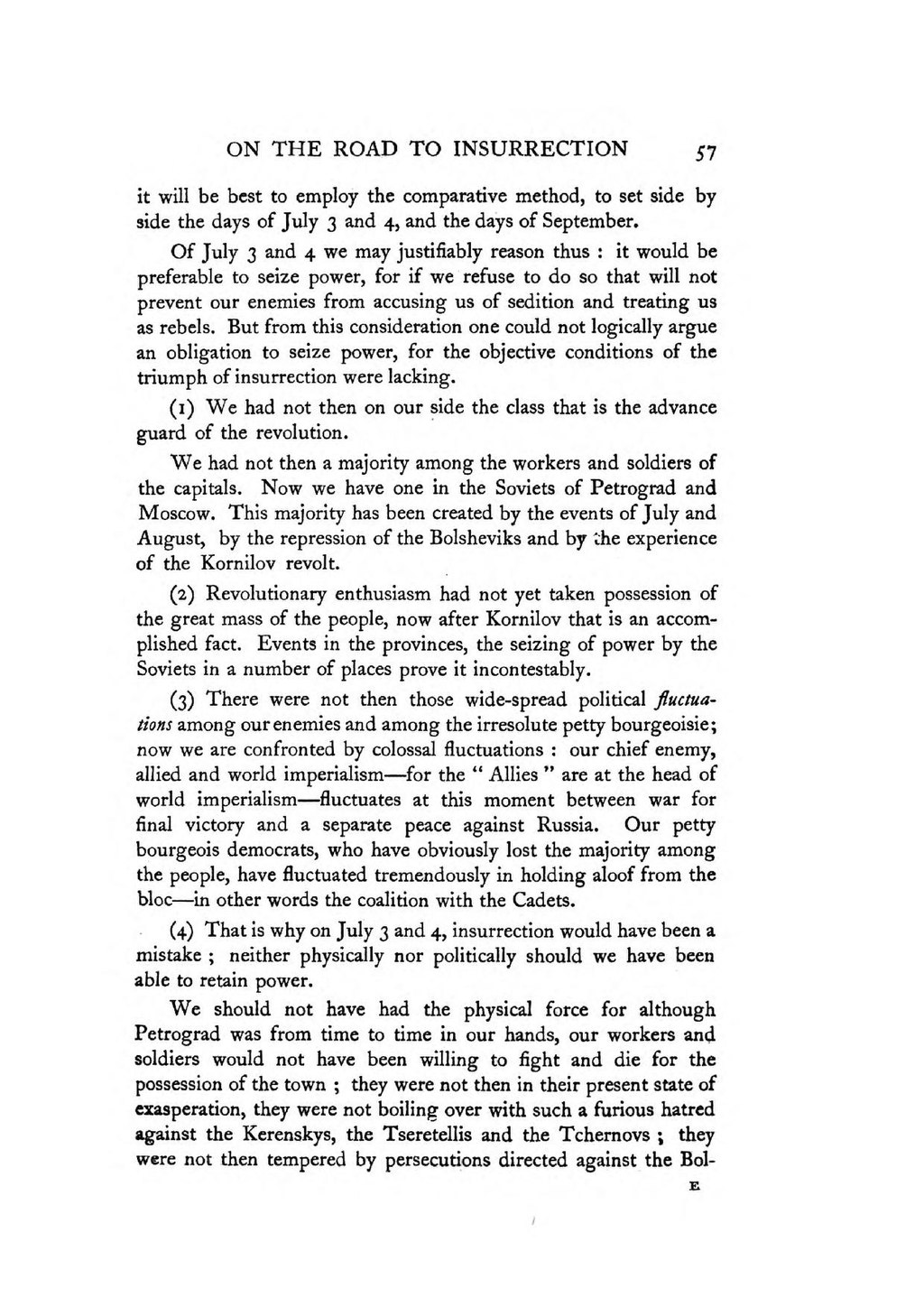it will be best to employ the comparative method, to set side by side the days of July 3 and 4, and the days of September.
Of July 3 and 4 we may justifiably reason thus: it would be preferable to seize power, for if we refuse to do so that will not prevent our enemies from accusing us of sedition and treating us as rebels. But from this consideration one could not logically argue an obligation to seize power, for the objective conditions of the triumph of insurrection were lacking.
(1) We had not then on our side the class that is the advance guard of the revolution.
We had not then a majority among the workers and soldiers of the capitals. Now we have one in the Soviets of Petrograd and Moscow. This majority has been created by the events of July and August, by the repression of the Bolsheviks and by the experience of the Kornilov revolt.
(2) Revolutionary enthusiasm had not yet taken possession of the great mass of the people, now after Kornilov that is an accomplished fact. Events in the provinces, the seizing of power by the Soviets in a number of places prove it incontestably.
(3) There were not then those wide-spread political fluctuations among our enemies and among the irresolute petty bourgeoisie; now we are confronted by colossal fluctuations: our chief enemy, allied and world imperialism—for the "Allies" are at the head of world imperialism—fluctuates at this moment between war for final victory and a separate peace against Russia. Our petty bourgeois democrats, who have obviously lost the majority among the people, have fluctuated tremendously in holding aloof from the bloc—in other words the coalition with the Cadets.
(4) That is why on July 3 and 4, insurrection would have been a mistake; neither physically nor politically should we have been able to retain power. We should not have had the physical force for although Petrograd was from time to time in our hands, our workers and soldiers would not have been willing to fight and die for the possession of the town; they were not then in their present state of exasperation, they were not boiling over with such a furious hatred against the Kerenskys, the Tseretellis and the Tchernovs; they were not then tempered by persecutions directed against the Bol-
